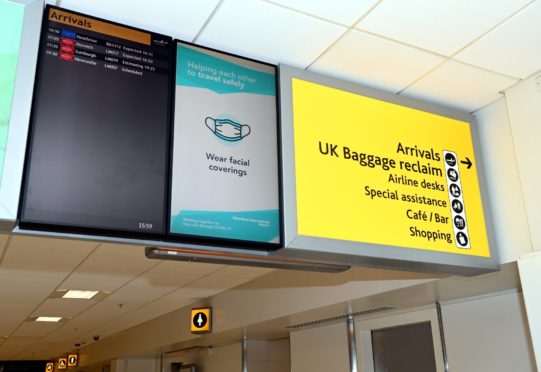New Covid travel rules for those arriving into Scotland from countries such as France and India will be introduced from Sunday morning.
Arrivals into Scotland from France will be able to avoid Covid isolation if they have received both doses of the coronavirus vaccine, the Scottish Government has announced.
From Sunday morning a host of new travel rules will come into place in Scotland, including moving India from red Covid list to amber.
The government said the step to realign France with the rest of the EU is possible due to a reported fall in the country’s Beta variant coronavirus case rate.
New Covid travel rules in Scotland for France
Other changes to the traffic light system saw Austria, Germany and Slovenia move from the amber to the green list.
Spain remains on the amber list but travellers are advised to be cautious as investigations continue into a new variant originating in South America and now present in Spain.
Travellers warned to take care in Spain
It is recommended passengers choose a PCR test prior to departure from Spain, rather than other available tests such as lateral flow devices.
The countries moving from the red to amber are India, Bahrain, Qatar and the United Arab Emirates.
Georgia and Mexico, as well as the French overseas territories of Réunion and Mayotte, have moved to the red list.
It means anyone arriving from these countries will have to isolate for 10 days in a managed quarantine facility.
International travel ‘remains challenging’
The cost of managed isolation has increased to £2,285 for a first adult and £1,430 for a second adult in a room. The price for children remains at £325.
Cabinet Secretary for Net Zero, Energy and Transport Michael Matheson said: “These latest changes make it clear that international travel remains challenging.
“Recent relaxations to travel restrictions for fully vaccinated people were due to the huge success of the Scottish Government’s vaccination programme.
“It is vitally important we protect that progress through continued vigilance on importation, and we continue to urge caution given the risks caused by variants of concern.”
